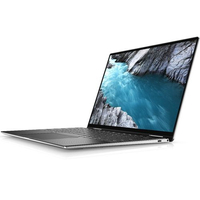Best forensic and pentesting Linux distro of 2025
For the security experts

We list the best forensic and penetration testing Linux distros, to make it simple and easy for your security experts to find weaknesses in your IT network.
They also help you to ward off unwanted attention from bad actors, to spot potential security weaknesses in your IT infrastructure to enable adequate measures to harden the network periphery.
The good news is that the most popular and best tools for the job are open source. And the even better news is that there are several projects that create specialized Live distros that bundle these tools and will help you identify the weaknesses in your network.
We’ve analyzed various distros to find the best forensic and pentesting Linux distros for you. We looked at the distro’s hardware requirements, how lightweight it was, whether it was available for 32-bit and 64-bit systems, and the documentation. Other than the existing documentation, we assessed the quality of third-party documentation, like books, video tutorials, and online forums. We also considered the simplicity of the user interface, the range of security and analysis tools they offered, and whether the internet traffic is routed through the Tor network.
We've also featured the best online cybersecurity courses and the best lightweight Linux distros.
1. Dell XPS 13 7390 | Starting at $899
The Dell XPS 13 7390 is one of the best Linux laptops currently available. The laptop also has a number of customizations you can opt for including additional RAM, larger storage capacity and even a 4K InfinityEdge touchscreen. The Ubuntu edition is a beautiful machine as it comes with a platinum silver finish with a black carbon fiber palm rest.
2. Learn Linux at Udemy | $12.99 for new users
Udemy is an online learning platform for those looking to develop their professional skills. If you're new to Linux, Jason Cannon's Linux for Beginners course is an excellent way to familarize yourself with the operating system and command line.
The best forensic and pentesting Linux distros in full:
Why you can trust TechRadar
Best forensic and pentesting Linux distro for newbies
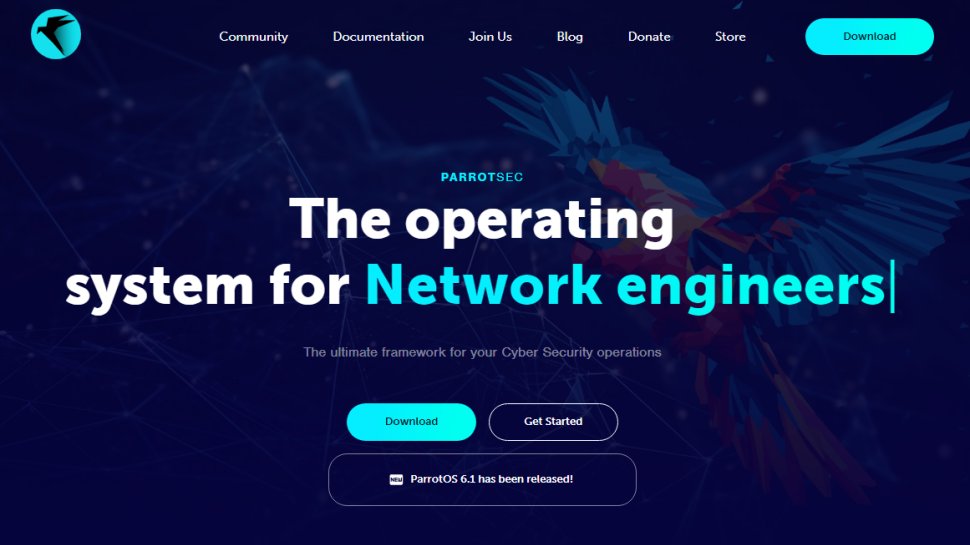
1. Parrot OS
Reasons to buy
Reasons to avoid
While Parrot OS is designed for penetration testing and vulnerability assessment, the distro has a bigger mandate than most of its peers, such as Kali Linux.
One of the first things you note about the 'Security Edition' of distro is its extensive boot menu. For instance, when used from a USB disk, you can choose to boot into the Live environment along with a persistent partition to save your changes.
There’s also a very useful option to encrypt this persistent partition. If you choose to install Parrot Security OS on your hard disk, you can also encrypt the hard drive. The OS has other advanced encryption tools like zulucrypt.
The Security Edition ISO is just under 5GB. This includes a large selection of tools are filed inside a neat menu structure that categorizes the tools as per their use. All the pen-testing tools are listed within the Parrot menu, which has sub-menus named Information Gathering, Vulnerability Analysis, Exploitation Tools, Password Attacks, Digital Forensics and several more. Most of these menus have more topical sub-menus. For instance, the Wireless Testing menu has sub-menus for 802.11 wireless tools, Bluetooth tools, RFID and NFC tools and more. The Digital Forensics section of the distribution is the result of the project’s collaboration with the lead developer of CAINE (Computer Forensics Linux Live Distro).
In addition to targeting pentesters, Parrot OS also aspires to be useful for average computer users that need a secure and privacy-focused distro like hacktivists, and journalists.
The distro also has a Home edition designed for anyone who cares about privacy and online anonymity. It includes software like LibreOffice and VLC Media Player to make it easier for day to day use. You can also install other software via the Synaptic package manager.
Best forensic and pentesting Linux distro for learning
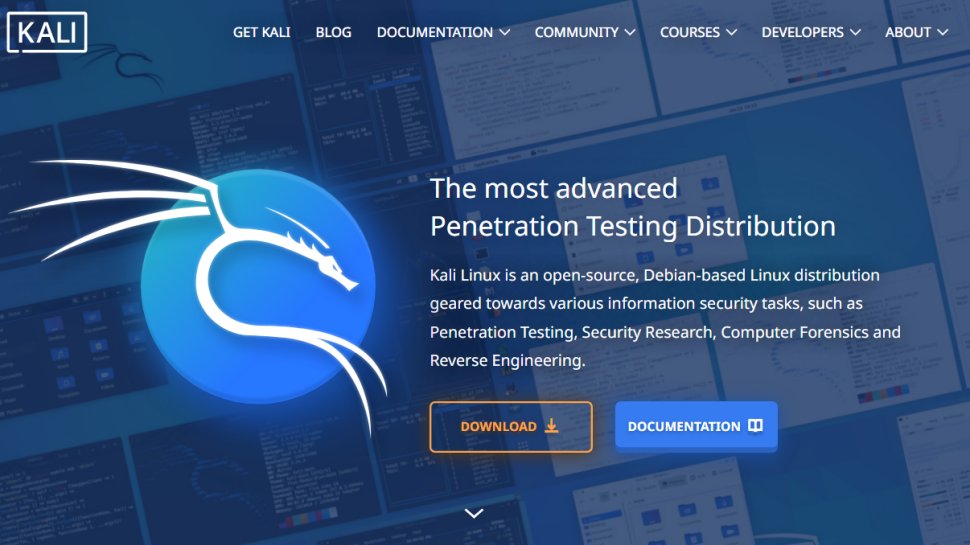
2. Kali Linux
Reasons to buy
Reasons to avoid
Perhaps the most well-known pentesting distro, Kali Linux is based on Debian and uses the Xfce desktop. It features a customized menu that is divided into numbered categories, which are further broken down into logical sub-categories. This arrangement not only simplifies navigation but also makes it easier to find the right tool for the task at hand.
Unlike distros such as BlackArch, the standard install of Kali doesn't include every single pen-testing tool. The ISO weighs in at just under 4GB. If you do want all available hacking tools in existence though, there's an 'Everything' ISO file of around 11.5 GB.
This is less than half the size of BlackArch's "full" installer. Still Kalis developers, many of whom work as pen testers themselves, assure that the ones it does include have been carefully curated to avoid duplicates and are the best tool for a particular job.
Kali Linux also makes it very easy to roll your own custom Kali-based distro. You can use its scripts to customize and tweak all aspects of the distro. To help you with the process, the Kali Linux project also has a couple of precooked build recipes to create custom Kali spins.
Kali Linux is available as an Live installable ISO, an install-only image as well as a netinstall ISO for both 32-bit and 64-bit machines. The project also offers images for several ARM-based devices including several Chromebooks, Raspberry Pi, BananaPi and Beaglebone Black. Kali images are also available for running in the cloud or a Virtual Machine.
The project's most recent release of the OS (2023.1) included "Kali Purple". This OS is designed for defensive security and comes with over 100 tools for that purpose.
Purple is still being developed but in offers pen-testers a potentially free, safe and legal way to carry out hacking attempts without having to set up a separate system themselves.
Perhaps the biggest factor for Kali’s popularity is the project’s ample documentation, both on and off the project’s website. Besides the official sources of documentation, you also find various third-party documentation, including books, screencasts and video tutorials all over the Internet.
Best forensic and pentesting Linux distro for enthusiasts
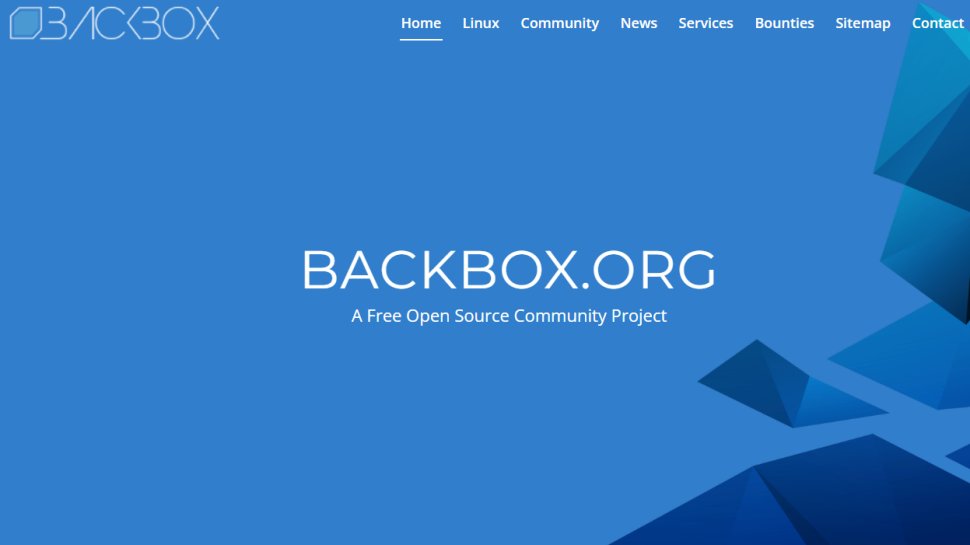
3. BackBox
Reasons to buy
Reasons to avoid
The latest release of BackBox is based on Ubuntu 22.04 LTS and uses the Xfce desktop. It's available as a single ISO only for 64-bit machines. You can download the file directly from the website or via Bittorrent. In addition to the regular boot options, the distro’s boot menu also offers the option to boot into a forensics mode where it doesn’t mount the disks on the computer.
BackBox includes some of the most common security and analysis tools. The project aims for a wide spread of goals, ranging from network analysis, stress tests, sniffing, vulnerability assessment, computer forensic analysis, exploitation, privilege escalation, and more.
All the pentesting tools are neatly organized in the Auditing menu under relevant categories. These are broadly divided into three sections. The first has tools to help you gather information about the environment, assess vulnerabilities of web tools, and more. The second has tools to help you reverse-engineer programs and social-engineer people. The third has tools for all kinds of analysis.
BackBox has further customized its application menu to display tooltips with a brief description of each bundled tool, which will be really helpful for new users who aren’t familiar with the tools. This is helpful as the main website doesn't contain a dedicated user manual or support pages. There is a dedicated forum and IRC channel though.
As an added bonus, the distro also ships with Tor and a script that will route all Internet bound traffic from the distro via the Tor network.
Best forensic and pentesting Linux distro for Gentoo users
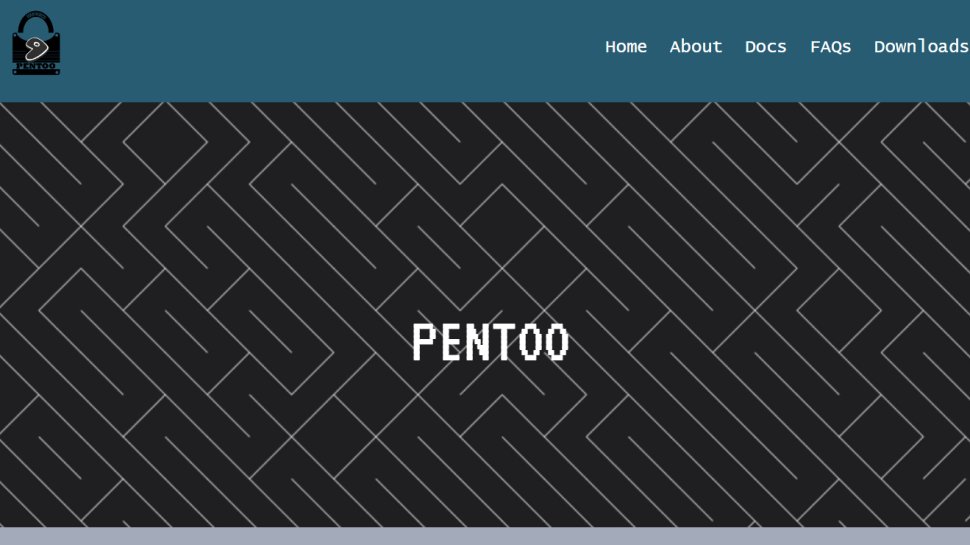
4. Pentoo
Reasons to buy
Reasons to avoid
Pentoo is based on the venerable source-based Gentoo distro, and even though it runs Xfce on the desktop, managing the distro will require familiarity with its Gentoo underpinnings.
Pentoo is also available as an overlay, which means that Gentoo users can install Pentoo atop their existing installations with a single command. Another unique aspect of the distro is that it uses a customized hardened kernel with several relevant patches.
In terms of pen testing, like all of the other distros in this list, Pentoo too has a categorized list of apps. However, unlike some of the other options in this guide, Pentoo’s categorization is a little too broad for our tastes, though they shouldn’t trouble experienced pen testers, which is whom the distro seems to be targeting, in our opinion.
As per the documentation on the project’s website, Pentoo at present produces three images; beta, daily and stable. In theory these are available as both "full" and "core" images. However we couldn’t find the stable image in any of the project’s mirrors. That said, Pentoo’s beta images worked as advertised, weighing in at just under 2 GB.
Pentoo also fares pretty poorly in the help and support department especially when compared to some of its peers. There’s a small FAQ and the docs section has an introductory video from the lead developer at Defcon 2014, but that’s about all the help you can expect from the project. This, along with the fact it's based on Gentoo and not a more common Linux distro like Debian makes it less than ideal for beginners.
Best forensic and pentesting Linux distro for experienced users
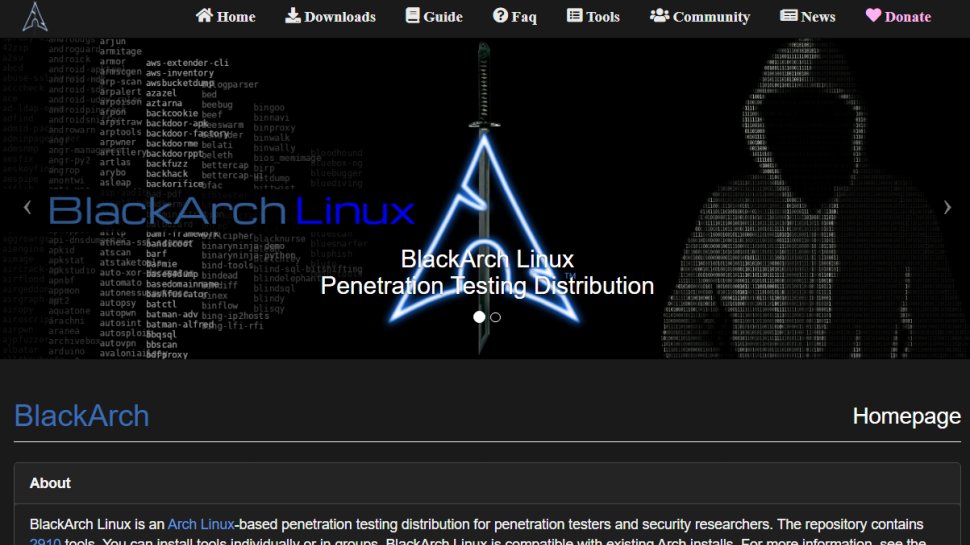
5. BlackArch
Reasons to buy
Reasons to avoid
As its name suggests, BlackArch is based on Arch Linux. The main feature of the distro is its huge collection of tools, numbering over 2800, many of which you wouldn’t find in any of the other distros.
If you want to download, all of these the 'Full' BlackArch ISO weighs in at a huge 22 GB. Luckily there's also a 'Slim' 5.5 GB version, though when we tried to download the ISO for review, we received a 404 (File Not Found) error.
The distro sorts the tools by classifying them under categories, such as anti-forensic, backdoor and cracker. These are however arranged alphabetically and offer no further sub-categories, which poses interesting navigation issues. For instance, some categories, such as cracker, recon and automation list over a hundred tools each, which makes scrolling through the menus rather cumbersome.
BlackArch’s best customization is its smart repository arrangement. If you are already an Arch user, you can install BlackArch atop your existing installation by using a special shell script. You can then install tools from the BlackArch repository.
On the flip side, the distro relies on a bunch of light-weight but esoteric window managers to draw the desktop. By default, the distro uses fluxbox but also offers i3, openbox, fluxbox, and others. This further restricts the audience for the distro. All things considered, BlackArch is meant for users who are adept at pentesting and care more about having the tools at their disposal and don’t care much about the interface.
These are the best Linux VPN providers.
Best forensic and pentesting Linux distro FAQs
How to choose the best forensic and pentesting Linux distros for you?
To choose the best forensic and pentesting Linux distros, consider how compatible it’ll be with your existing hardware. Some distros run well on new systems, but aren’t optimized to perform smoothly on old hardware. Similarly, not all distros are available across both 32 and 64-bit architecture.
If you’re a beginner, you’ll want to pick a distro that has plenty of documentation available, as well as official support and an active online forum where you can clarify your doubts. You’ll want to consider whether the user-interface is simple and friendly, and if the software repositories are vast. Importantly, make sure you pick a distro that offers the right pentesting tools for your needs.
How we tested the best forensic and pentesting Linux distros
We assessed a whole range of Linux distros to find the best forensic and pentesting Linux distros for you. To start with, we considered all the hardware requirements — installation space, installation time, system architecture (32 or 64-bit), and whether it’s optimized for older hardware. We looked at the quality of existing documentation, checked if it was updated well, reviewed the online forums to see how active they were, and searched for other third-party documentation (like video tutorials).
We then considered the variety and quality of security and pentesting tools that the distros were offering. We checked what advanced features they offered, and how complex they were to operate. We also looked at the user interface and overall customizability of the distros.
Read more on how we test, rate, and review products on TechRadar.
We've also featured:
- Best Linux repair and rescue distros
- Best NAS & media server distros
- Best Arch-based distros
- Best Linux distro for Windows users
- Best USB bootable distros
Get in touch
- Want to find out about commercial or marketing opportunities? Click here
- Out of date info, errors, complaints or broken links? Give us a nudge
- Got a suggestion for a product or service provider? Message us directly
- You've reached the end of the page. Jump back up to the top ^
Are you a pro? Subscribe to our newsletter
Sign up to the TechRadar Pro newsletter to get all the top news, opinion, features and guidance your business needs to succeed!
With almost two decades of writing and reporting on Linux, Mayank Sharma would like everyone to think he’s TechRadar Pro’s expert on the topic. Of course, he’s just as interested in other computing topics, particularly cybersecurity, cloud, containers, and coding.
